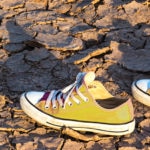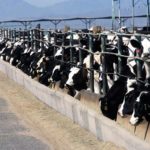Human engineering to fight against climate change
Climate change is one of the greatest problems facing humanity. Abrupt temperature changes, famine, disease and floods are all evidence that changes in the climate are not a myth. The consequences could get worse if we do not manage to reduce the greenhouse effect, as Matthew Liao warns in his book The Next Step: Exponential Life. It can be downloaded at no charge on BBVA’s website for the OpenMind project.

A recent study published by Frontiers in Marine Science magazine reveals that more than 51% of Europeans believe that human activity is not the main cause of global warming. Spain, Italy and Germany stand out as the countries where people are most familiar with the problem. More than 60% of those interviewed in these countries are aware that climate change has a human origin and are willing to take steps to address it.
A team of researchers from Lund University in Sweden compiled different studies from recent years that offer calculations of how some individual actions add up to major progress in the fight against climate change. The results of this study show that the actions with the greatest impact are having fewer children, not owning a car, not taking long flights and not eating animal products.
Liao, who is the Director of the Center for Bioethics at New York University, goes one step farther, proposing the development of human engineering as the most effective way to fight climate change. To that end, he offers four solutions that are corroborated by studies that have already been published. Before developing his theory, Liao makes clear that as he envisages it, “human engineering would be a voluntary activity…rather than a coerced, mandatory activity.”
Pharmacological intolerance to meat
An FAO report estimates that 18% of global greenhouse gas emissions come from intensive livestock farming. Each cow emits between 100 and 500 liters of methane per day. Most of these animals are raised for human consumption, meaning that reducing the amount of red meat in our diet by 21% could have a large impact on the environment.
In order to reduce this consumption, Liao suggests artificially inducing an intolerance by stimulating the immune system to work against the proteins present in beef. This intolerance could be provoked naturally from a Lone Star tick bite, which is not harmful for humans. This bite would transmit a carbohydrate called alfa-gal to the bloodstream, leading people to produce antibodies to fight it. Liao is not suggesting that people become vegetarians, but rather that they acquire an intolerance to the animal that contributes the most to greenhouse gas emissions.

"18% of global greenhouse gas emissions come from intensive livestock farming"
Having smaller children
The human footprint is closely tied to people’s size, meaning that an effective way to reduce the environmental impact is to make humans smaller. This could be accomplished through pre-implantation genetic diagnosis (PGD) in fertility clinics to assess embryos with certain genetically transmitted diseases. The PGD could be used to select shorter children, which would not entail any type of genetic alteration.
Hormone treatment is another method the philosopher proposes to modify levels of the growth hormone somatotrophin in order to cause the growth cartilage to close ahead of time. This method is already being used to stop growth in children who are too tall. He also suggests activating the genes of one of the parents and deactivating those of the other, through medication or nutrients, in order to lessen the size of the baby.
Reducing birth rates
Although having children does not by itself have a major impact on the environment, doing so in a society where each person emits too much pollution creates a real problem. According to World Bank data, in 2016 a person in the Congo emitted 30 kg of CO2 per year, while a person in the U.S. produced 16.4 tons of CO2.
The solution lies in access to education to reduce the birth rate in places with the greatest pollution, thereby helping to improve the environment. Liao suggests using medications such as Ritalin and Modafinil to improve cognitive functions in order to reduce the birth rate in countries like the United States, where the teen pregnancy rate is one of the highest. These medications can increase people’s ability to teach themselves, which would affect the birth rate, and indirectly, climate change.
Pharmacologically induced altruism and empathy
Most environmental problems come from a lack of collective action. As they do not consider themselves the main cause of climate change, humans do not take action to fight it. The induction of altruism and empathy can increase the likelihood of this occurring. There is evidence that altruism and empathy have a biological foundation that could be pharmacologically altered.
A clinical trial has shown that if the hormone oxytocin (available in pharmacies with a prescription) is administered, it creates a tendency to act with greater integrity. Oxytocin also seems to improve people’s ability to understand other people’s emotions, an essential characteristic for empathy. These studies suggest that interventions that affect sensitivity in the neural systems could also increase people’s willingness to cooperate with rules or social goals.
According to Liao, the proposals he includes in the OpenMind book are feasible and could lead to major progress in the fight against climate change. Many of the technologies mentioned above, such as PGD, are already being used for other purposes with success. However, prior to convincing people to participate in human engineering, the risks involved must first be minimized.